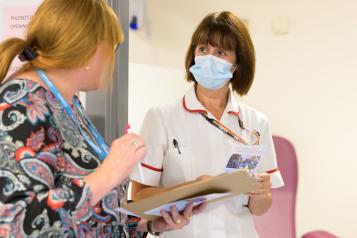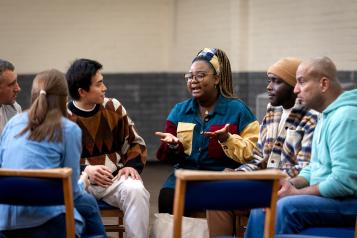People share why you should have your say about changes to your local NHS

Healthcare will only work if people get to have their say
A student, an ambulanceman and a headteacher are all calling on the public to share their views about what local NHS services can do to better meet people’s needs.
“Healthcare will only work if people get to have their say,” says Bob Champion, 82, a former ambulanceman from Shepton Mallet in Somerset. “By talking and listening to people who have been ill you get fantastic knowledge and feedback about health services, which we will all have to use at some stage in our lives.”
Bob is one of many people we spoke to about why the public should have their say about how health services should change. The Government is investing an extra £20bn a year in the NHS, which has produced a Long Term Plan, setting out all the things it wants health services to do better for people across the country. It’s now up to local areas to decide how their services will change, and they need to hear from people about what they think is needed for their communities.
Patients are the experts, each and every one of them has a story to share, whether it’s good or bad. I would encourage others to take part and make sure their voice is heard.
Bob has had plenty of first-hand experience with health and care services in Somerset, having worked as an ambulanceman for over 30 years. He was also the main carer for his wife Shirley before she passed away in 2010. His 52-year-old daughter Michelle is also in long-term care, after having a stroke several years ago.
“Before Shirley became ill with an autoimmune disease, we were both very active in our retired years and enjoyed going on holidays around the UK,” he said. “When she lost her mobility, we initially tried to keep up these trips but soon found it too difficult.
“We then spent an increasing amount of time at home or in and out of local hospitals. Our experience with these health and care services wasn’t always good. Then my daughter suffered a massive stroke at the age of 48 and I have had to deal with issues over the type of care she receives.”
Retired headteacher Brian from Highnam near Gloucester, believes feedback is vital too, particularly as people get older. “As people get older, they can have more health problems,” he said. “I have friends who need hip or knee replacements and sometimes they need extra support or advice about the local health services they use. It’s important they have somewhere they can feed back their experiences, so ultimately the services can be improved.”
Southampton student Zoe Radford is passionate about helping others, particularly younger people in need of mental health services. The 20-year-old from Calne in Wiltshire, has helped support a family member with mental health issues and knows how important it is to share your experiences.
“I have had personal links with people living with mental health issues, so I have a keen interest and experience of local health services,” she said. “I think waiting times should be shorter for those waiting to access services. I also think that mental health services in Wiltshire should be more publicly advertised, so people know where to go if you’re struggling with mental health issues.”
What would you do to make care better where you live?
If you’ve got a question about services available where you live, or you’d like to discuss your ideas further, contact your local Healthwatch.


